
Find Help
More Items From Ergsy search
-

What is Cushing's syndrome?
Relevance: 100%
-

Munchausen's syndrome | NHS
Relevance: 34%
-

Prader-Willi Syndrome | NHS
Relevance: 34%
-

Carpal Tunnel Syndrome
Relevance: 33%
-
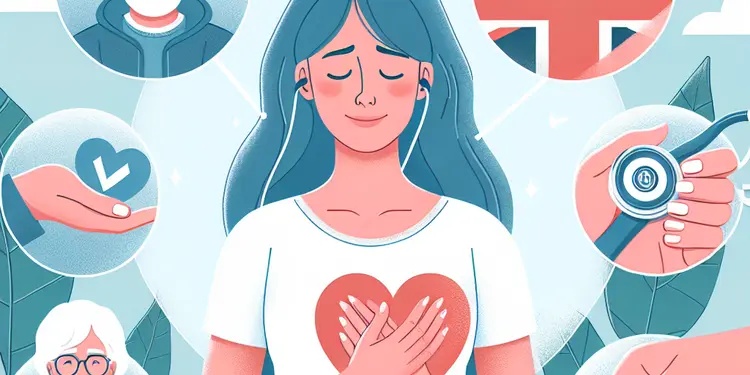
Is chronic fatigue syndrome contagious?
Relevance: 32%
-

Turner syndrome: Beyond the classic XO phenotype
Relevance: 32%
-

Having a child with Down's syndrome | NHS
Relevance: 32%
-

Down's syndrome: Emily's story | NHS
Relevance: 32%
-

What causes Carpal Tunnel Syndrome?
Relevance: 31%
-
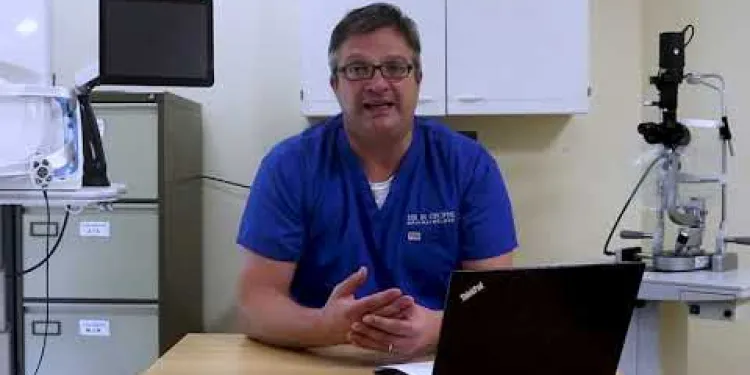
Charles Bonnet Syndrome
Relevance: 31%
-

What causes chronic fatigue syndrome?
Relevance: 31%
-

Is Carpal Tunnel Syndrome covered by the NHS?
Relevance: 31%
-

Exercises for sciatica: piriformis syndrome | NHS
Relevance: 31%
-

How is Carpal Tunnel Syndrome diagnosed?
Relevance: 31%
-
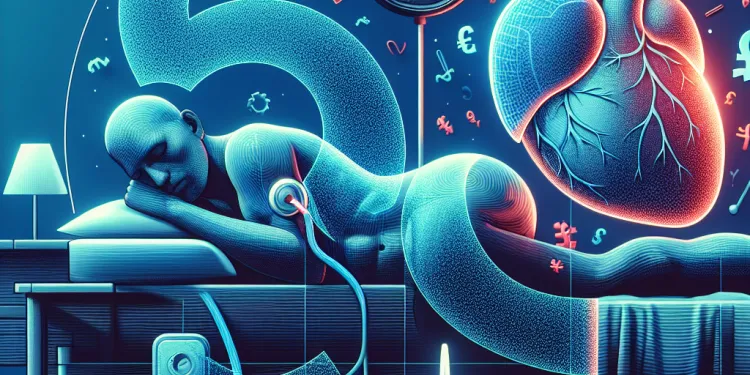
What is complex sleep apnea syndrome?
Relevance: 30%
-

What is complex sleep apnea syndrome?
Relevance: 30%
-

What is Carpal Tunnel Syndrome (CTS)?
Relevance: 30%
-

What is chronic fatigue syndrome?
Relevance: 30%
-

What is congenital rubella syndrome?
Relevance: 30%
-

How can I prevent Carpal Tunnel Syndrome?
Relevance: 30%
-

Having a child with Edwards' syndrome (trisomy 18) | NHS
Relevance: 29%
-

What is the difference between autism and Asperger's syndrome?
Relevance: 29%
-

Are there any alternative treatments for Carpal Tunnel Syndrome?
Relevance: 29%
-

Can Carpal Tunnel Syndrome recur after treatment?
Relevance: 28%
-

Are there psychological aspects to chronic fatigue syndrome?
Relevance: 28%
-

Is chronic fatigue syndrome a mental illness?
Relevance: 28%
-

Greater trochanteric pain syndrome
Relevance: 28%
-
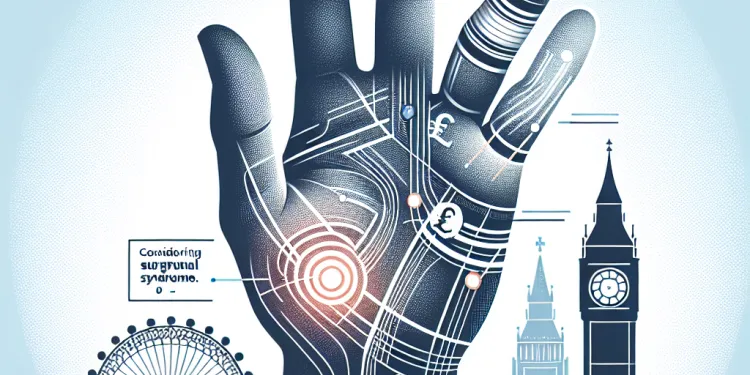
When should I consider surgery for Carpal Tunnel Syndrome?
Relevance: 28%
-

Building Understanding and Supporting Your Child with Tourette’s Syndrome/Tics
Relevance: 28%
-

What role do infections play in chronic fatigue syndrome?
Relevance: 28%
-

Can baby sleep pillows prevent flat head syndrome?
Relevance: 28%
-

What non-surgical treatments are available for Carpal Tunnel Syndrome?
Relevance: 27%
-

Are there specific exercises that can help with Carpal Tunnel Syndrome?
Relevance: 27%
-

Who is at risk of developing chronic fatigue syndrome?
Relevance: 27%
-

What are the common symptoms of Carpal Tunnel Syndrome?
Relevance: 27%
-

What is irritable bowel syndrome (IBS)?
Relevance: 27%
-

What is cortisol?
Relevance: 27%
-
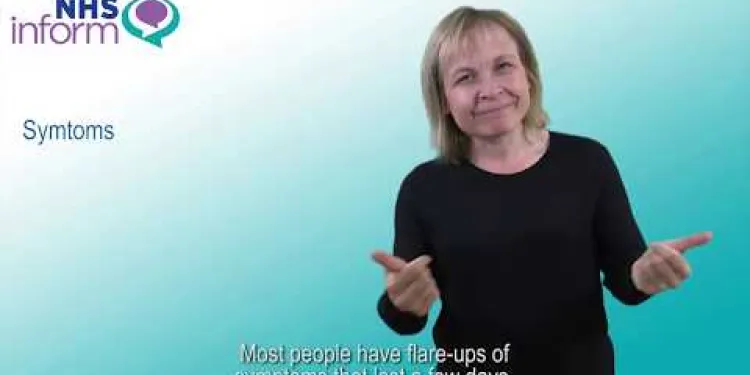
Symptoms of irritable bowel syndrome (IBS)
Relevance: 26%
-
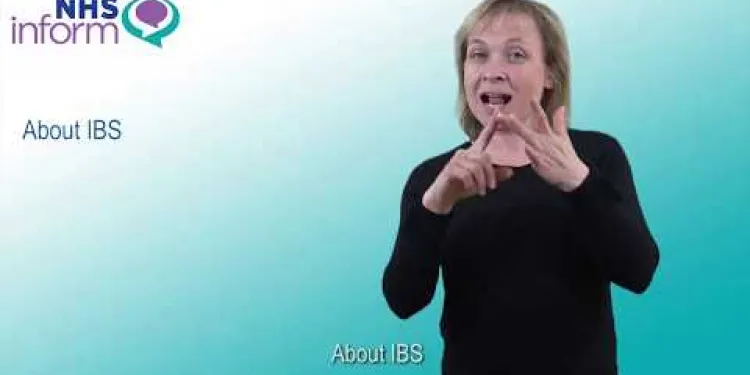
About irritable bowel syndrome (IBS)
Relevance: 26%
-
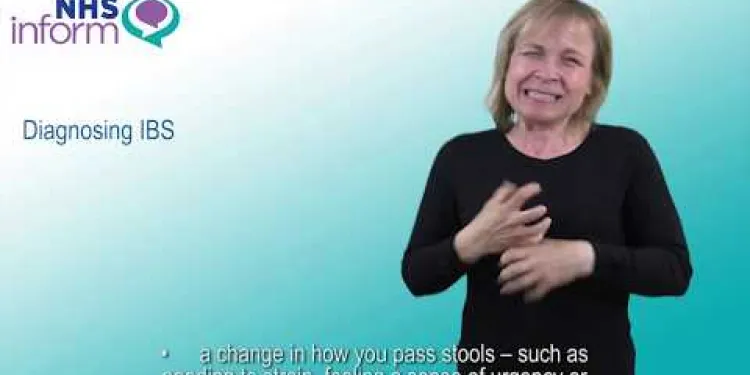
Diagnosing irritable bowel syndrome (IBS)
Relevance: 26%
Introduction to Cushing's Syndrome
Cushing's syndrome is a medical condition characterized by an overproduction of cortisol, a hormone produced by the adrenal glands. Cortisol plays a crucial role in various bodily functions, including regulating metabolism, reducing inflammation, and helping the body respond to stress. However, excessive levels of this hormone can lead to significant health challenges.
Causes of Cushing's Syndrome
Cushing's syndrome can be caused by several factors, most commonly by prolonged use of corticosteroid medications prescribed for conditions such as asthma, rheumatoid arthritis, and lupus. This is known as exogenous Cushing's syndrome. Endogenous Cushing's syndrome occurs when the body produces too much cortisol due to abnormalities. One common cause is a pituitary adenoma, a benign tumour in the pituitary gland that increases the production of adrenocorticotropic hormone (ACTH), subsequently causing the adrenal glands to produce excess cortisol. Other causes include adrenal tumours or ectopic ACTH syndrome, where ACTH is produced by non-pituitary tumours elsewhere in the body.
Symptoms of Cushing's Syndrome
The symptoms of Cushing's syndrome can vary but often include weight gain, particularly around the abdomen and face, giving a rounded "moon face" appearance. Patients may also notice thin skin that bruises easily, purple stretch marks on the skin, fatigue, muscle weakness, high blood pressure, and mood changes such as depression or anxiety. In women, excess hair growth on the face and body can occur, while men may experience decreased libido and erectile dysfunction.
Diagnosis of Cushing's Syndrome
Diagnosis of Cushing's syndrome can be complex and typically involves a series of tests to measure cortisol levels in the body. These may include a 24-hour urinary free cortisol test, a late-night saliva cortisol test, or a low-dose dexamethasone suppression test. If these tests indicate elevated cortisol levels, further imaging studies such as MRI or CT scans might be conducted to identify potential tumours on the pituitary or adrenal glands.
Treatment Options
Treatment for Cushing's syndrome depends on the underlying cause. If the syndrome is due to prolonged corticosteroid use, gradually reducing the medication under medical supervision may resolve symptoms. For endogenous cases, surgery to remove tumours may be necessary, often followed by radiation therapy or medication to control cortisol production. Medications could include ketoconazole, metyrapone, or mitotane, each working differently to reduce cortisol levels. In some cases, bilateral adrenalectomy, the surgical removal of the adrenal glands, might be considered.
Conclusion
While Cushing's syndrome can have significant impacts on a person's health and quality of life, effective treatments are available, especially when the condition is diagnosed early. Regular follow-up and monitoring are essential as part of managing this syndrome effectively. Patients in the UK with symptoms suggestive of Cushing's syndrome are encouraged to seek medical advice for appropriate evaluation and management.
Introduction to Cushing's Syndrome
Cushing's syndrome is a health problem. It happens when the body makes too much of a hormone called cortisol. Cortisol is made by the adrenal glands. It is important for controlling how the body uses food, helps stop swelling, and helps the body deal with stress. But too much cortisol can cause health problems.
Causes of Cushing's Syndrome
There are different reasons why someone might get Cushing's syndrome. One common reason is taking certain medicines for a long time. These medicines are called corticosteroids and are used to treat things like asthma and arthritis. This type is called exogenous Cushing’s syndrome. Another type, called endogenous Cushing's syndrome, happens when the body makes too much cortisol on its own. This can be because of a non-cancerous tumor in the pituitary gland, which is in the brain. This tumor causes more of a hormone called ACTH, leading to more cortisol production. Other reasons include tumors on the adrenal glands or other tumors that make ACTH somewhere else in the body.
Symptoms of Cushing's Syndrome
People with Cushing's syndrome might notice changes like gaining weight, especially around the stomach and face, causing a round "moon face." They might have skin that bruises easily, purple lines on their skin, feel very tired, have weak muscles, high blood pressure, or feel sad or anxious. Women might have more hair on their face and body, while men could have less interest in sex.
Diagnosis of Cushing's Syndrome
Finding out if someone has Cushing's syndrome can take time and needs different tests. Doctors measure cortisol levels with a urine test over 24 hours, a saliva test at night, or a special test with a medicine called dexamethasone. If these tests show high cortisol levels, doctors might do scans like an MRI or CT scan to look for tumors.
Treatment Options
How Cushing's syndrome is treated depends on what causes it. If it's because of taking corticosteroid medicines, slowly stopping the medicine with a doctor's help might fix the problem. If the body is making too much cortisol on its own, surgery to remove the tumor might be needed. After surgery, radiation or medicines might be used to control cortisol levels. Some medicines are ketoconazole, metyrapone, or mitotane. In some cases, doctors might need to remove the adrenal glands to stop cortisol production.
Conclusion
Cushing's syndrome can change how someone feels and their health a lot, but there are treatments that help, especially if it’s found early. It is important to keep seeing the doctor to manage the condition well. People in the UK who think they might have Cushing's syndrome should talk to a doctor to get checked out and treated.
Frequently Asked Questions
What is Cushing's syndrome?
Cushing's syndrome is a hormonal disorder caused by prolonged exposure to high levels of the hormone cortisol.
What are the common symptoms of Cushing's syndrome?
Common symptoms include weight gain, particularly around the abdomen and face, thinning skin, easy bruising, and fatigue.
What causes Cushing's syndrome?
Cushing's syndrome can be caused by long-term use of corticosteroid medications or by the body producing too much cortisol due to a tumor or genetic condition.
How is Cushing's syndrome diagnosed?
Diagnosis typically involves a combination of physical exams, blood and urine tests to measure cortisol levels, and imaging studies to identify any tumors.
What is the difference between Cushing's syndrome and Cushing's disease?
Cushing's disease is a specific form of Cushing's syndrome caused by a pituitary tumor that overproduces ACTH, leading to excess cortisol production.
Can Cushing's syndrome occur in animals?
Yes, Cushing's syndrome can also occur in animals, particularly dogs.
What is the role of cortisol in the body?
Cortisol is a steroid hormone produced by the adrenal glands that helps regulate metabolism, immune response, and stress response.
How is Cushing's syndrome treated?
Treatment depends on the cause and may include surgery, radiation, medications to control cortisol production, or discontinuation of corticosteroid medications.
Can lifestyle changes help manage Cushing's syndrome?
While lifestyle changes alone cannot cure Cushing's syndrome, a healthy diet and regular exercise can help manage symptoms and improve overall health.
Is Cushing's syndrome life-threatening?
If left untreated, Cushing's syndrome can lead to serious complications and potentially be life-threatening due to increased risk of infections, high blood pressure, and other issues.
How common is Cushing's syndrome?
Cushing's syndrome is relatively rare, with an estimated incidence of about 2 to 3 cases per million people per year.
What kind of doctors treat Cushing's syndrome?
Endocrinologists, who specialize in hormone-related disorders, typically treat Cushing's syndrome.
Can stress cause Cushing's syndrome?
While stress can increase cortisol levels, it does not cause Cushing's syndrome. The syndrome is due to excessive cortisol due to medical reasons.
Is Cushing's syndrome hereditary?
Most cases are not hereditary, but some genetic conditions can increase the risk of developing Cushing's syndrome.
Can medication cause Cushing's syndrome?
Yes, long-term use of corticosteroid medications can cause iatrogenic Cushing's syndrome.
What are the long-term effects of untreated Cushing's syndrome?
Untreated Cushing's syndrome can lead to complications such as osteoporosis, high blood pressure, diabetes, and increased risk of infections.
Can diet impact the symptoms of Cushing's syndrome?
A balanced diet can help manage some symptoms like high blood pressure, but it cannot treat the underlying cause.
What is the prognosis for individuals with Cushing's syndrome?
With proper treatment, many individuals with Cushing's syndrome can lead normal lives, but it may depend on the underlying cause and time to diagnosis.
How long does it take to recover from Cushing's syndrome treatment?
Recovery time varies; some individuals may start feeling better in weeks, while others may take months to fully recover.
Can Cushing's syndrome recur after treatment?
Yes, Cushing's syndrome can recur, especially if caused by a tumor that regrows or if not all of it was removed.
What is Cushing's syndrome?
Cushing's syndrome is a sickness. It happens when there is too much of a hormone called cortisol in the body.
Cortisol helps with stress, blood sugar, and fighting sickness. But too much cortisol can make someone feel unwell.
People with Cushing's syndrome might feel tired or have weak muscles. They could also gain weight or have a round face.
If you think you have Cushing's syndrome, talk to a doctor. They can help you feel better.
To help understand better, you can use simple language dictionaries or tools that read aloud. Try using pictures or videos to see what Cushing's syndrome is.
Cushing's syndrome happens when there is too much of a hormone called cortisol in your body for a long time.
What are the signs of Cushing's syndrome?
Cushing's syndrome can make people feel unwell. Here are some signs to look for:
- Gaining weight, especially on the face, neck, and around the middle.
- Feeling tired a lot.
- Muscles feeling weak.
- Skin that bruises easily.
- Red, round face.
- Purple marks on the skin, like stretch marks.
If you notice these signs, it's good to talk to a doctor.
Use tools like a reading ruler to help focus on one line at a time. Listening to the text with a text-to-speech app can also be helpful.
Some common signs you might notice are getting bigger around your belly and face, having thin skin, bruises that happen easily, and feeling very tired.
What makes Cushing's syndrome happen?
Cushing's syndrome happens when there is too much of a hormone called cortisol in the body.
Here are some reasons why this might happen:
- Medicine: Taking too much medicine called steroids can cause it.
- Tumors: A small bump (tumor) on your glands can make too much cortisol.
- Body problems: Sometimes, the body makes too much of a hormone without a clear reason. This might be because of a problem in the glands.
If you are trying to understand this better, you can:
- Ask a doctor or a nurse to explain it.
- Use apps that read text out loud (like text-to-speech).
- Look at pictures or videos about Cushing’s syndrome online.
Cushing's syndrome can happen if you take certain medicines called corticosteroids for a long time. It can also happen if your body makes too much of a hormone called cortisol. This might be because of a lump in the body or something you are born with.
How do doctors know if you have Cushing's syndrome?
Doctors can do tests to find out if you have Cushing's syndrome. They might ask for:
- A blood test to check hormone levels.
- A urine test to look for extra hormones.
- A saliva test to check hormones at night.
Doctors use these tests to see if your body is making too many hormones. This helps them know if you have Cushing's syndrome.
It might help to talk to a family member or friend before going to the doctor. You can also use a notebook to write down questions you have for the doctor.
Doctors find out what is wrong by using different tests. First, they do a check-up. Then, they test blood and pee to see how much cortisol is in them. They might also use a special camera to look inside the body to see if there are any lumps.
Using pictures when reading can help you understand better. Also, you can listen to the text if reading is hard.
How are Cushing's syndrome and Cushing's disease different?
Cushing's syndrome and Cushing's disease are about too much cortisol in the body. Cortisol is a hormone that helps us handle stress.
Cushing's syndrome happens when the body has too much cortisol from any source, like medicine.
Cushing's disease happens when a small growth in the brain tells the body to make too much cortisol.
If you find these words tricky, you can try using pictures or videos to learn more. It can also help to ask someone to explain it to you.
Cushing's disease happens when there is a small lump in a part of the brain called the pituitary gland. This lump makes too much of a chemical called ACTH. When there is too much ACTH, the body makes too much of a hormone called cortisol.
Can animals get Cushing's syndrome?
Yes, animals can get Cushing's syndrome. It is common in older dogs. Cushing's syndrome happens when there is too much of a hormone called cortisol in the body. This can make animals feel tired and sick.
To help understand more, you can:
- Ask a vet for advice.
- Watch videos about Cushing's syndrome in animals.
- Read simple books about pet health.
Yes, animals like dogs can get Cushing's syndrome too.
What does cortisol do in the body?
Cortisol is a hormone. Hormones are like messengers in our body. They tell our body what to do.
Cortisol helps us in many ways:
- It helps when we feel stressed. It gives us energy to deal with problems.
- Cortisol helps control our blood sugar, which gives us energy.
- It helps us fight illnesses so we can stay healthy.
- Cortisol helps our body use fat, protein, and carbs for energy.
Sometimes, we can use tools to help us understand more about bodies and hormones:
- Watch simple videos about the body.
- Use apps that explain how bodies work.
- Ask a grown-up to explain things we don’t understand.
Cortisol is a chemical made by the body. It comes from small organs called adrenal glands. Cortisol helps your body use food for energy, helps you stay healthy, and helps you handle stress.
How do doctors help people with Cushing's syndrome?
Cushing's syndrome is a condition that people get when their body has too much of a hormone called cortisol.
Doctors help people with Cushing's syndrome by:
- Giving them medicine to lower the cortisol levels.
- Helping them change their diet and exercise routine.
- Sometimes doing an operation to fix the problem.
If you or someone you know has Cushing's syndrome, talk to a doctor. They can explain how they will help.
It might help to have someone with you during the doctor's visits. You can also write down notes to remember what the doctor says.
Treatment depends on what is causing the problem. It might include:
- Having an operation (surgery)
- Getting special X-ray treatment (radiation)
- Taking medicine to help control cortisol levels
- Stopping taking corticosteroid medicine
If you or someone you know finds reading hard, here are some ideas that might help:
- Ask someone to read with you
- Use text-to-speech tools that can read words out loud
- Try highlighting words as you read them
- Take breaks if you need to
Can changing how you live help with Cushing's syndrome?
Cushing's syndrome is a condition where the body has too much of a hormone called cortisol. It's important to listen to your doctor and follow their advice.
Here are some things that might help:
- Eat Healthy: Try to eat lots of fruits, vegetables, and whole grains. These foods are good for your body.
- Stay Active: Moving your body with exercise can help you feel better. Even a short walk each day can help.
- Sleep Well: Try to sleep at the same time each night and get plenty of rest.
- Ask for Help: It’s okay to ask family, friends, or support groups for help.
Talking to a doctor or nurse can help you learn more. There are also apps and books that can help you understand and manage Cushing's syndrome better.
Cushing's syndrome cannot be fixed just by changing your lifestyle. But eating healthy foods and exercising can help you feel better and stay healthy.
Is Cushing's syndrome dangerous?
If you do not treat Cushing's syndrome, it can cause big health problems. It can even be very dangerous. You might get sick more easily, have high blood pressure, and other health issues.
How many people have Cushing's syndrome?
Cushing's syndrome doesn't happen often. Only about 2 to 3 people out of a million get it each year.
What doctors help with Cushing's syndrome?
Cushing's syndrome is a health problem.
Some special doctors can help. Here are some:
- Endocrinologists: These doctors know a lot about hormones. Hormones are chemicals in your body.
- Neurosurgeons: These doctors work on the brain. They can help if the problem is in the brain.
- Primary Care Doctor: They know your health history. They can help you find the right special doctor.
If you find it hard to read, you can do these things:
- Ask someone to read the text to you.
- Use a dictionary to understand hard words.
- Use a computer tool that reads text out loud.
Doctors who know a lot about hormones are called endocrinologists. They help people with a health problem called Cushing's syndrome.
Can stress make you sick with Cushing's syndrome?
Sometimes when we worry a lot, it can make our bodies feel bad. But getting a sickness called Cushing's syndrome from stress is very rare. Cushing's syndrome happens when our bodies have too much of a hormone called cortisol.
If you feel worried a lot, here are a few things that might help:
- Talk to someone you trust about your feelings.
- Do fun activities that help you relax, like drawing or listening to music.
- Exercise, like going for a walk or playing outside.
- Remember to take deep breaths when you feel nervous.
If you think you might be sick, it is important to see a doctor.
Stress can make your body produce more of a chemical called cortisol. But, stress does not cause Cushing's syndrome. Cushing's syndrome happens because of too much cortisol for medical reasons.
If reading is hard, try these tips:
- Read slowly, one sentence at a time.
- Use your finger to guide you under the words as you read.
- Ask someone to read with you and talk about what it means.
- Listen to the text read out loud if you can find an audio version.
Can Cushing's syndrome run in families?
Most people do not get Cushing's syndrome from their family. But some health problems in your genes can make it more likely.
Can medicine cause Cushing's syndrome?
Yes, some medicines can cause Cushing's syndrome. Taking too much steroid medicine can lead to it. If you take medicines like corticosteroids for a long time, ask your doctor if it is safe.
Try using large print or colored overlays to help with reading. You can also ask someone to read with you.
Yes, taking certain medicines called corticosteroids for a long time can cause a health problem called Cushing's syndrome.
Here's how you can understand it better:
- Corticosteroids are medicines that help with swelling and pain.
- Using them too long can sometimes make your body act like it has too much of a hormone called cortisol.
- This makes a condition called Cushing's syndrome, which can cause weight gain, a round face, and weak muscles.
Here are some tools to help you:
- Ask a grown-up if you need help understanding this.
- Use big and clear print to read more easily.
- Take breaks and read slowly.
What happens if Cushing's syndrome is not treated?
If Cushing's syndrome is not treated, it can cause other health problems. These can happen slowly over a long time.
- Weak bones that can break easily.
- High blood pressure, which is not good for the heart.
- Diabetes, which means too much sugar in the blood.
- Muscle weakness, making it hard to move around.
- Gaining a lot of weight, especially in the face and body.
It is important to get help from a doctor. They can give you medicine or other treatments to feel better.
If Cushing's syndrome is not treated, it can cause other problems. These problems include weak bones, high blood pressure, diabetes, and getting sick more easily.
Can food change the symptoms of Cushing's syndrome?
Cushing's syndrome is when your body has too much of a hormone called cortisol. This can make you feel tired or gain weight. The food you eat can help with these problems. Here are some tips:
- Eat lots of fruits and vegetables. They are good for you and can help you feel better.
- Try to eat whole grains, like brown rice or whole wheat bread. They give you energy.
- Eat less salty foods, like chips and fast food. Too much salt is not good for you.
- Drink lots of water. It helps your body stay healthy.
It can help to keep a food diary. Write down what you eat each day. This can help you see which foods make you feel good.
Talking to a doctor or a dietitian can also be helpful. They can give you advice about what foods are best for you.
Remember, a healthy diet can help you feel better, but it is important to listen to what your doctor says too.
Eating healthy foods can help with problems like high blood pressure. But eating healthy cannot fix the main reason why you have these problems.
What will happen to people with Cushing's syndrome?
With the right help, many people with Cushing's syndrome can live normal lives. But, it might depend on what causes it and how quickly it is found.
How long to get better after Cushing's syndrome treatment?
Getting better after treatment for Cushing's syndrome can take time. Here is what you need to know:
- Recovery time is different for each person.
- Some people start feeling better in a few weeks.
- Others may need a few months to feel good again.
- Your doctor can help and support you.
- If you have questions, always ask your doctor.
It can be helpful to:
- Take notes to remember what your doctor says.
- Use a calendar to track your progress.
- Talk to friends or family for support.
How long it takes to get better is different for each person. Some people might start feeling good in a few weeks. But for others, it could take them a few months to feel all better. Using a calendar to mark progress can help see changes over time.
Can Cushing's syndrome come back after treatment?
Cushing's syndrome can come back after treatment. Your doctor will help check for this. Use a calendar or alarm as reminders for doctor visits. If you feel unwell, tell a grown-up or a doctor right away.
Yes, Cushing's syndrome can come back. This can happen if a tumor grows again or if part of it was not taken out.
Useful Links
This website offers general information and is not a substitute for professional advice.
Always seek guidance from qualified professionals.
If you have any medical concerns or need urgent help, contact a healthcare professional or emergency services immediately.
- Ergsy carfully checks the information in the videos we provide here.
- Videos shown by Youtube after a video has completed, have NOT been reviewed by ERGSY.
- To view, click the arrow in centre of video.
- Most of the videos you find here will have subtitles and/or closed captions available.
- You may need to turn these on, and choose your preferred language.
- Go to the video you'd like to watch.
- If closed captions (CC) are available, settings will be visible on the bottom right of the video player.
- To turn on Captions, click settings .
- To turn off Captions, click settings again.
More Items From Ergsy search
-

What is Cushing's syndrome?
Relevance: 100%
-

Munchausen's syndrome | NHS
Relevance: 34%
-

Prader-Willi Syndrome | NHS
Relevance: 34%
-

Carpal Tunnel Syndrome
Relevance: 33%
-

Is chronic fatigue syndrome contagious?
Relevance: 32%
-

Turner syndrome: Beyond the classic XO phenotype
Relevance: 32%
-

Having a child with Down's syndrome | NHS
Relevance: 32%
-

Down's syndrome: Emily's story | NHS
Relevance: 32%
-

What causes Carpal Tunnel Syndrome?
Relevance: 31%
-

Charles Bonnet Syndrome
Relevance: 31%
-

What causes chronic fatigue syndrome?
Relevance: 31%
-

Is Carpal Tunnel Syndrome covered by the NHS?
Relevance: 31%
-

Exercises for sciatica: piriformis syndrome | NHS
Relevance: 31%
-

How is Carpal Tunnel Syndrome diagnosed?
Relevance: 31%
-

What is complex sleep apnea syndrome?
Relevance: 30%
-

What is complex sleep apnea syndrome?
Relevance: 30%
-

What is Carpal Tunnel Syndrome (CTS)?
Relevance: 30%
-

What is chronic fatigue syndrome?
Relevance: 30%
-

What is congenital rubella syndrome?
Relevance: 30%
-

How can I prevent Carpal Tunnel Syndrome?
Relevance: 30%
-

Having a child with Edwards' syndrome (trisomy 18) | NHS
Relevance: 29%
-

What is the difference between autism and Asperger's syndrome?
Relevance: 29%
-

Are there any alternative treatments for Carpal Tunnel Syndrome?
Relevance: 29%
-

Can Carpal Tunnel Syndrome recur after treatment?
Relevance: 28%
-

Are there psychological aspects to chronic fatigue syndrome?
Relevance: 28%
-

Is chronic fatigue syndrome a mental illness?
Relevance: 28%
-

Greater trochanteric pain syndrome
Relevance: 28%
-

When should I consider surgery for Carpal Tunnel Syndrome?
Relevance: 28%
-

Building Understanding and Supporting Your Child with Tourette’s Syndrome/Tics
Relevance: 28%
-

What role do infections play in chronic fatigue syndrome?
Relevance: 28%
-

Can baby sleep pillows prevent flat head syndrome?
Relevance: 28%
-

What non-surgical treatments are available for Carpal Tunnel Syndrome?
Relevance: 27%
-

Are there specific exercises that can help with Carpal Tunnel Syndrome?
Relevance: 27%
-

Who is at risk of developing chronic fatigue syndrome?
Relevance: 27%
-

What are the common symptoms of Carpal Tunnel Syndrome?
Relevance: 27%
-

What is irritable bowel syndrome (IBS)?
Relevance: 27%
-

What is cortisol?
Relevance: 27%
-

Symptoms of irritable bowel syndrome (IBS)
Relevance: 26%
-

About irritable bowel syndrome (IBS)
Relevance: 26%
-

Diagnosing irritable bowel syndrome (IBS)
Relevance: 26%


